Many TLJ haters are the sorts of knuckledraggers incapable of seeing any woman or minority in a sci-fi movie without launching into a spittle-flecked rant centering upon the ess jay dubyas punctuated frequently by assorted herps and derps. Their opinions can, needless to say, be ignored and mocked without anything significant or intelligent being lost from the discourse. Still, there is a surprising amount of people who I consider to be rational and intelligent who do not recognize that The Last Jedi was a brilliant film and that Luke’s journey is why. Needless to say, these people, however well-meaning are wrong.
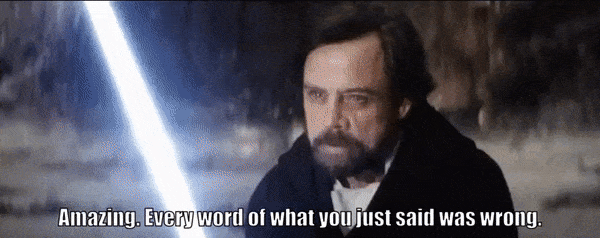
This film begins where The Force Awakens left off, with Rey handing Luke his own lightsaber. He immeidately grasps the enormity of the situation and…. no, I’m kidding, he immediately chucks it over his shoulder. This is, of course, a source of great outrage for a great many Luke fanboys, who pissed their padawan vestments when Luke turned out to be anything less than the epic warrior we last saw. This outrage overlooks that, when we first met Yoda, George Lucas spent ten minutes trying to convince us he was actually just comic relief. In truth, the parallel is clear – Luke’s place in TLJ is Yoda’s in TESB.
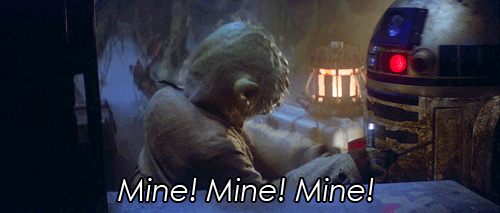
Yes, Luke is a hermit now, as was not only Yoda but also Obi-Wan before him. Both of those warriors effectively retired and went into hiding at the height of their powers and abilities. So did Luke. Luke abandoned his role as a Jedi with the transformation of Ben Solo into Kylo Ren, rather than fight him, allowing the First Order to emerge. This may seem uncharacteristic of Luke, but it eerily parallels Obi-Wan and Yoda doing the same when Darth Vader and the Empire emerged. Which when you think about it, seems like a bizarre dereliction of duty for everyone. What’s going on here?

There are some differences. Luke is a hermit, sure, but unlike Obi-Wan, he has no interest in taking a new student. This may seem wacky, but remember, Yoda was in no hurry to teach Luke either, proclaiming Luke to have ‘no patience’ and to be ‘too old’. Still, Luke seems to have gone from being a paragon of hope to Debbie Downer.
The Last Jedi Haters: It is COMPLETELY UNBELIEVABLE that someone who was once full of hope and optimism could end up a cranky, old fuck!
Me, a 20 year veteran of the games industry: OH REALLY DO TELL ME MORE— Damion Schubert, Cranky Game Designer (@ZenOfDesign) October 31, 2019
Luke hermitage seems even more extreme than Yoda or Obi-Wan. He cut himself off from the force entirely – which means it’s entirely likely he didn’t see Rey as a potential force sensitive, but rather as a message for his sister to reengage with the fight. He has no interest in that. He made it clear he came to Ahch-To for one reason – to die. Why is that? What turns a Jedi into a hermit so severely?
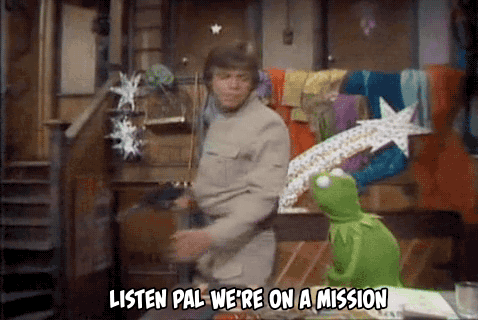
One clear answer is guilt. Luke thought he could raise up an entire Jedi order. Instead, his actions resulted in the death of all of his students, and the rise of Kylo Ren and the First Order – and the loss of his Sister’s son. Entire star systems would be extinguished by Luke’s hubris. Similar guilt is also hinted at by Obi-Wan, who said of Darth Vader, “I thought I could instruct him just as well as Yoda. I was wrong.”

And then there’s the guilt of what he almost did. The man who had such faith in his ability to turn his father that he went on a suicide mission to redeem him in ROTJ saw visions of such horror that he could find nothing to redeem in his nephew. In a moment of weakness – possibly kindled by Snoke’s machinations – he ignited his lightsaber, and immediately realized his mistake. But that moment – that horrible failing – was the one that turned Ben into a giant rage baby.

The second answer is recognition that the Jedi Order created its own villains. As Luke says, “The Legacy of The Jedi is failure, hypocrisy, hubris.” Palpatine and Vader arose at the height of the Jedi’s power, and to some degree with their unwitting aid. Similarly, Kylo Ren learned to use and hone his powers from a Jedi. Would he have been so terrible a villain if he had, much like Leia, never been taught to hone his force sensitivity?
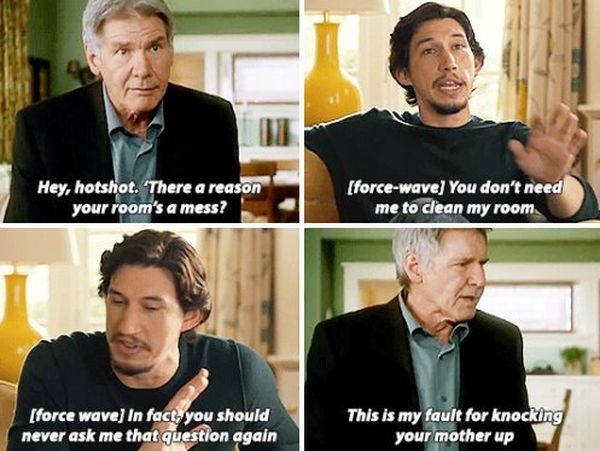
If the Force always pushes the galaxy towards Balance, doesn’t it stand to reason that great Jedi will always result in great villains to counter them? If so, is it irresponsible to create great Jedi if there are no villains to fight?

The third reason is more interesting, and centers upon how Luke differs from Yoda. Luke is terrified of himself. Here, a good parallel to consider is The Lord of the Rings. One of the central themes is the recognition by people like Galadriel and Gandalf that they, of all people, cannot carry the ring. They are too powerful, and the risk that they will be corrupted and therefore agents of evil is too great.

Luke knew he had the darkness in him. He knew the Skywalker curse was in Ben’s blood — but his as well. He almost succumbed. If he had struck down Ben, he would have himself fallen into darkness. In a fit of fear, likely with the help of Snoke messing with his mind, Luke had a moment of doubt, before he realizes how close to the abyss he came.
A visual comparison I made last year of Luke in RETURN OF THE JEDI and THE LAST JEDI, coming to the same realisation that he was letting himself slip towards the Dark Side of the Force… it's like poetry, it rhy–yeah, you get it.#TheLastJedi #TLJGang #LukeSkywalker pic.twitter.com/dmk4ZuUuFE
— Luke Ryan (@RazorwireRyan) October 27, 2019
If Luke had gone to the Dark Side at the end of Jedi, it would have been one thing. He was a barely trained Jedi of limited power then. But Luke in TLJ is a full-blown master now, capable of incredible acts of force manipulation spanning the galaxy. Him becoming a Sith would have been disastrous for the forces of light. He is angry, he is fearful, he is full of all of those emotions that Yoda trained him would lead to the dark side. He believed, deep down, that maybe he was the monster that Palpatine once saw in him. So rather than risk himself falling into darkness, he did the only responsible thing: he cut himself off from the force entirely.

And so then he sees Rey and Kylo playing Force Footsie, which prompts Luke to freak out. Far from being an overbearing helicopter Dad playing cold blanket, Luke is freaked out on multiple vectors. Not only is there concern that Kylo might be manipulating her directly, Luke can see a budding romance. The Jedi teaches against having strong emotion, and against having strong emotional bonds. The Order used to recruit force users while young specifically so they wouldn’t have familial bonds. Anakin, for example, was turned partially due to the tragedies involving his mother and wife. Luke’s judgment about Ben/Kylo was undoubtedly clouded by his familial relation to the boy. In his mind, the bond between the two lovers could only lead Rey to the dark side.
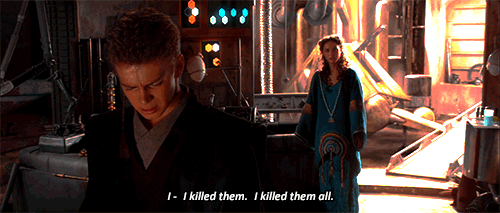
It’s worth noting that that’s why Snoke forged those bonds.

And then we get to the final fight. Many TLJ detractors were disappointed that Luke didn’t finish TLJ with a huge fucking Michael Bay style fight where Luke takes on the whole First Order. They forget that the Luke’s pivotal moment in ROTJ was THROWING AWAY HIS LIGHTSABER.

(He would throw away another lightsaber at the beginning of The Last Jedi, and don’t tell me that parallel isn’t significant).

“A Jedi uses the Force for knowledge and defense, never for attack,” was the core of Yoda’s teachings. “Wars do not make one great.” Whether this pacifism was a core teaching that the Jedi as a whole took seriously (we see a lot of eager warrior Jedi in the prequels, for example), it clearly was the path that Luke took to heart. It was his own path to the Light Side at the end of Return of the Jedi. How significant, then, that Luke found a solution that saved Leia and the resistance that embraced the pacifist path of Yoda’s teachings that saved him in Return of the Jedi.
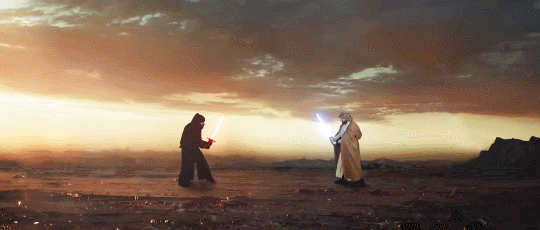
Yes, instead of letting rage consume him and plunging into a fight, he found his inner calm and peace – and in doing so showed a new, truly awesome aspect of the force. We’re talking Astral Projection convincing enough to mindfuck an entire army. This is, by far, the most powerful display of the Force we’ve seen in a Star Wars movie, and one that allows Luke to reconnect with the Force and save the day without risking falling into darkness.

After that, Luke stares into the suns. His theme plays, as he reflects on his life and his path through it. He is now smiling for the first time in the movies. He has reconnected with the Force, on his own terms, and now without fear, allows himself to become one with it. He disappears, surely destined to help guide our heroes through the next chapter as his master did for him.
The Last Jedi is a top three Star Wars movie. It’s not without its flaws (the ponderous gas chase, the overly Disneyesque stampede scene), but Luke’s journey is one of the best character arcs of any Star Wars film, and that alone elevates it. This plotline adds something very real and deep to the psychology of the Jedi. It dares to ask the question: why did these great Jedi exile themselves from the fight? How do they carry the price of failure? How do they deal with the knowledge that they are latent superweapons waiting to happen?
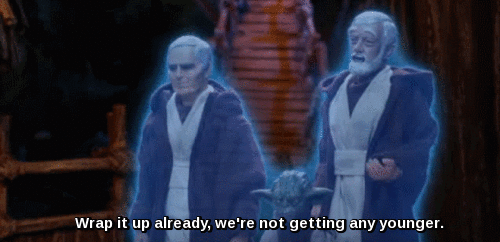
And the answer is ‘poorly’. Jedi in the Star Wars universe that reach old age do not remain productive members of society. The Last Jedi gives you an understanding of why that is. And I’ll admit, as someone who watched Star Wars as a child in the drive thru and am no feeling the effects of age, Luke’s journey speaks even more to me. So all you young kids who think that this was a bad movie, or that somehow it diminished Luke Skywalker, get the fuck off my lawn and go learn to Star Wars.

Recent Comments